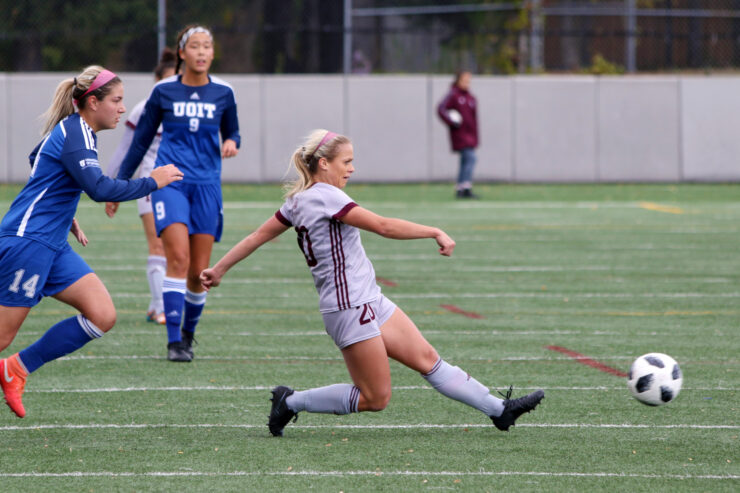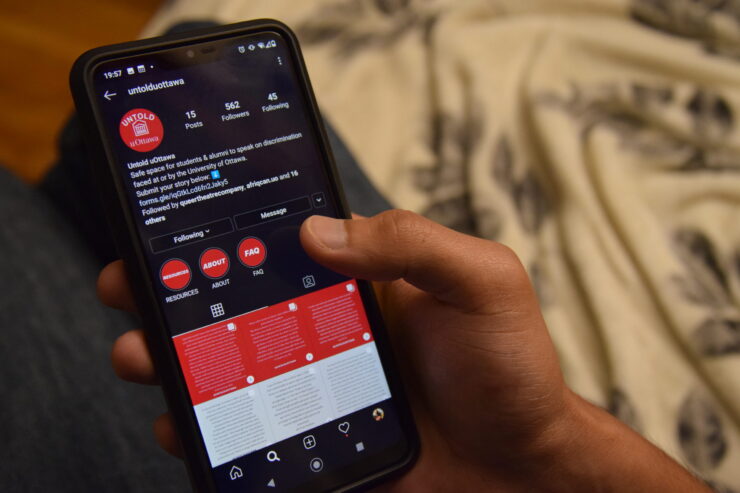UONDP hosts multi-partisan discussion to bridge the gaps in political representation
As it stands, 27 per cent of seats in the House of Commons are occupied by female Members of Parliament. That’s why, on March 27, the University of Ottawa New Democratic Party (UONDP) hosted “27%”, an event focused on encouraging women to get involved in politics, featuring NDP Member of Parliament and Assistant Deputy Speaker Carol Hughes as the guest speaker.
Although hosted by the UONDP, the club’s vice-president equity Tiyana Maharaj explained that the event was labelled as multi-partisan, as “diversity in politics is not a partisan issue.”
According to Maharaj, who is in her third year of international development and women’s studies at the U of O, “increasing diversity is a national issue and trying to represent our country as a whole is not just the responsibility of the party in power.”
The event started with an informal discussion on the current state of diverse representation, or lack thereof, in the House of Commons. The audience was met with statistics showing that only 14.5 per cent of the House consists of visible minorities, including 88 women, one of whom is black, and 10 Indigenous MPs.
This was followed by a brainstorming session where attendees were encouraged to name a woman in politics who inspired them, name a challenge that stops women from entering politics, and name one tangible thing that can be done to increase diverse representation.
UONDP co-president Danielle Kydd, a third-year political science and public administration student, identified childcare as one of the big barriers for women entering politics.
“Whether you are a man or a woman raising kids, you are still facing that same barrier of childcare.” However, she acknowledged that there are prominent gendered aspects of raising children.
“There are barriers in the home that are not saying ‘women take on politics in your spare time.’”
Marahaj believes low representation is another substantial barrier. “It is a difficult thing to put your name on a ballot especially coming from a kind of oppressed, intersectional background where you don’t see MPs that look like you.”
She further explained that the need for representation extends to the campus level, as she and Kydd are the only racialized women on the UONDP executive.
As for tangible ways to improve diverse representation, Marahaj calls for women to be provided with the same resources as men.
“It’s definitely kind of a culture thing we need to shift to be able to encourage and empower women to run, and to give them the tools they need to run,” she said, naming campaign training, social media training, fundraising and self-advocacy as areas of improvement.
Both executives hope participants walked away from the event feeling like they have a place to be represented and strengthen their voice. “All of this activism and these conversations are not something that we should be doing about people but with people,” said Marahaj.
Kydd mirrored her sentiment, adding, “it’s really important when we talk about issues to make people feel like stakeholders in them.”
Kydd also hopes to continue talks on other gaps in representation, including a multi-partisan panel on racial issues, as well as one focused on barriers to entering politics.
“Politicians are people too, and if you want these people to run for politics, we have to make it welcoming for them and recognize these barriers … that prevent women and other diverse groups from getting involved in politics.”






